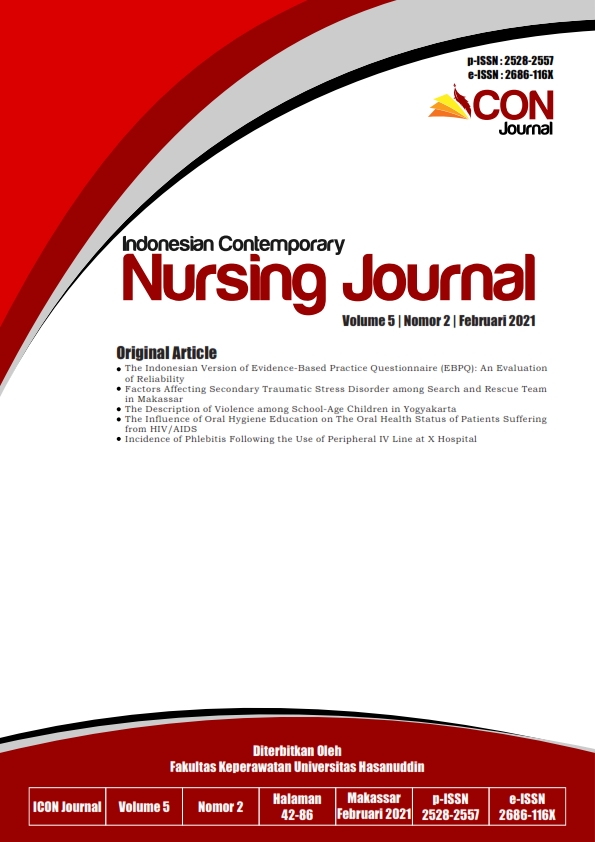Considerations for nursing research after the COVID-19 pandemic
DOI:
https://doi.org/10.20956/icon.v8i1.28265Keywords:
COVID-19, nursing, research, virtualAbstract
The COVID-19 pandemic impacted on nursing in a variety of ways. Many parts of the world experienced long-term lockdowns and what work could be done remotely was undertaken that way. For those nurses engaged in research activities, particularly clinical nursing research, it presented immense challenges. Questionnaire-based research had to be moved exclusively online, while interview-based research was managed using videoconference facilities and making some qualitative research approaches requiring participant observation more difficult. Being able to recruit participants for research was further challenged as researchers were unable to recruit in person and needed to resort to a multitude of online approaches such as using social media platforms. As a result of impacted recruitment, many researchers needed to report their research as being unable to meet quality measures such as sample size calculations or data saturation. This particularly impacted research students with time pressures to complete, and report on, their studies. Similarly, they needed to acknowledge in their study limitations how the pandemic had impacted on their research.
References
Alanazi, T. N. M., McKenna, L., Buck, M., & Alharbi, R. J. (2022). Reported effects of the COVID-19 pandemic on the psychological status of emergency healthcare workers: A scoping review. Australasian Emergency Care, 25(3), 197–212. https://doi.org/10.1016/j.auec.2021.10.002
Efendi, F., Aurizki, G. E., Auwalin, I., & McKenna, L. (2022). The Need for Speed: A Qualitative Study on Nurse Recruitment and Management Amidst the COVID-19 Pandemic in Indonesia. Journal of Multidisciplinary Healthcare, 15(August), 1809–1817. https://doi.org/10.2147/JMDH.S370758
Hameed, B. Z., Tanidir, Y., Naik, N., Teoh, J. Y. C., Shah, M., Wroclawski, M. L., Kunjibettu, A. B., Castellani, D., Ibrahim, S., da Silva, R. D., Rai, B., de la Rosette, J. J. M. C. H., TP, R., Gauhar, V., & Somani, B. (2021). Will “Hybrid” Meetings Replace Face-To-Face Meetings Post COVID-19 Era? Perceptions and Views From The Urological Community. Urology, 156, 52–57. https://doi.org/10.1016/j.urology.2021.02.001
Hlatshwako, T. G., Shah, S. J., Kosana, P., Adebayo, E., Hendriks, J., Larsson, E. C., Hensel, D. J., Erausquin, J. T., Marks, M., Michielsen, K., Saltis, H., Francis, J. M., Wouters, E., & Tucker, J. D. (2021). Online health survey research during COVID-19. The Lancet Digital Health, 3(2), e76–e77. https://doi.org/10.1016/S2589-7500(21)00002-9
Ioannidis, J. P. A., Salholz-Hillel, M., Boyack, K. W., & Baas, J. (2021). The rapid, massive growth of COVID-19 authors in the scientific literature. Royal Society Open Science, 8(9). https://doi.org/10.1098/rsos.210389
Roberts, J. K., Pavlakis, A. E., & Richards, M. P. (2021). It’s More Complicated Than It Seems: Virtual Qualitative Research in the COVID-19 Era. International Journal of Qualitative Methods, 20, 1–13. https://doi.org/10.1177/16094069211002959
Tao, Y., Steckel, D., Klemeš, J. J., & You, F. (2021). Trend towards virtual and hybrid conferences may be an effective climate change mitigation strategy. Nature Communications, 12(1). https://doi.org/10.1038/s41467-021-27251-2
Downloads
Published
Issue
Section
License
Authors who publish with this journal agree to the following terms:Authors retain copyright and grant the journal right of first publication with the work simultaneously licensed under a Creative Commons Attribution License that allows others to share the work with an acknowledgement of the work's authorship and initial publication in this journal.
Authors are able to enter into separate, additional contractual arrangements for the non-exclusive distribution of the journal's published version of the work (e.g., post it to an institutional repository or publish it in a book), with an acknowledgement of its initial publication in this journal.
Authors are permitted and encouraged to post their work online (e.g., in institutional repositories or on their website) prior to and during the submission process, as it can lead to productive exchanges, as well as earlier and greater citation of published work (See The Effect of Open Access).


